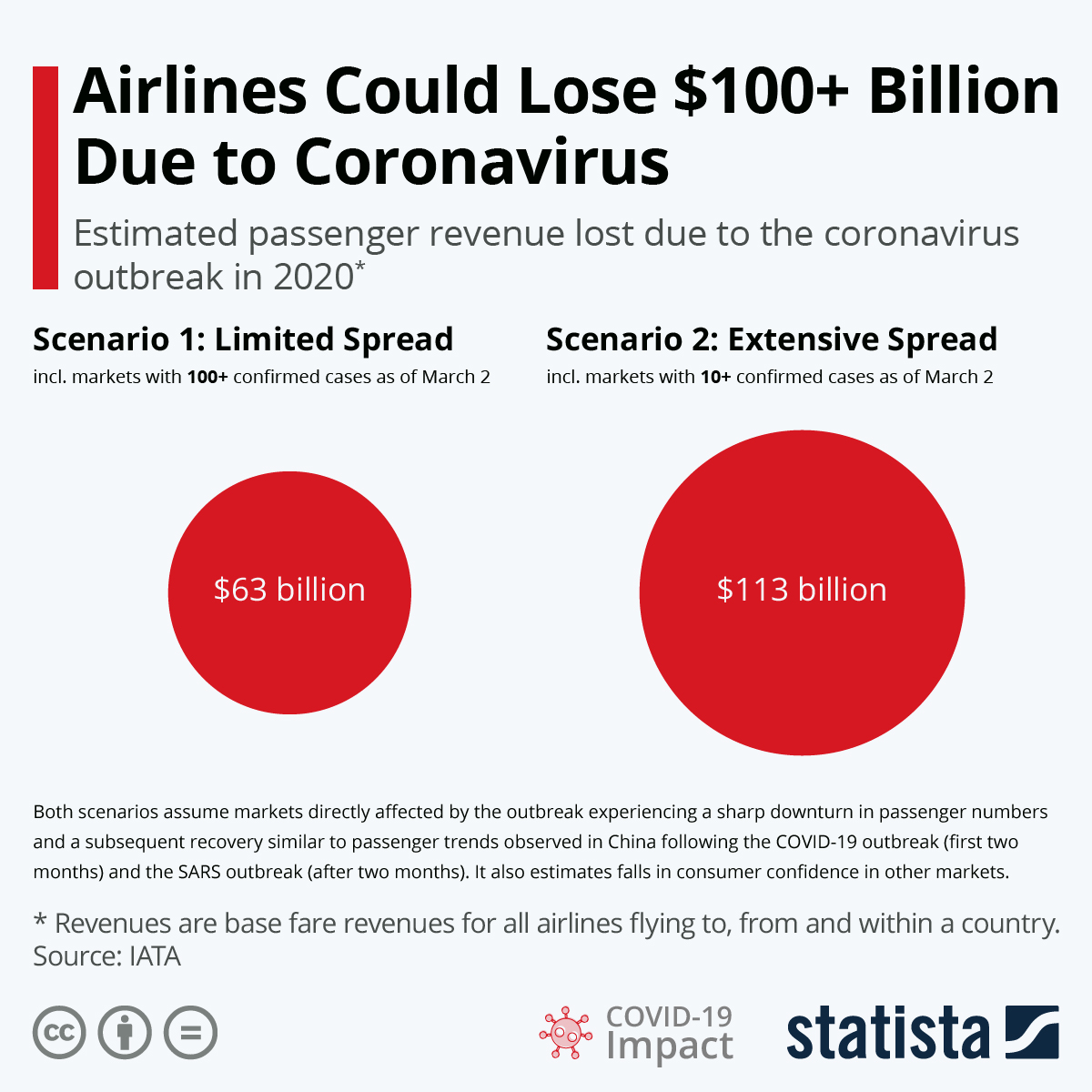One of the industries most severely affected by the novel coronavirus outbreak is the airline industry. As government agencies issue travel warnings, firms cut down on business travel and many tourists don’t feel comfortable flying during an ongoing epidemic, airlines are seeing a vast number of cancellations and many passenger planes take to the skies half empty – that is if they’re not grounded altogether.
According to new estimates from the International Air Transport Association (IATA), an industry group representing some 290 airlines comprising 82 percent of global air traffic, the losses incurred by airlines could be much higher than originally anticipated. Even if the outbreak can be largely limited to the countries that had more than 100 confirmed COVID-19 cases as of March 2 – a scenario that already looks highly unlikely – the IATA predicts that airlines would suffer an 11 percent loss in passenger revenue this year, equal to $63 billion. That’s up from a previous estimate of $29.3 billion, issued by IATA on February 20, which was based on the assumption that the impact of the outbreak “would be largely confined to markets associated with China”.
Taking into account the rate at which the virus is currently spreading in many countries, a second, so-called “extensive spread” scenario, seems more likely from today’s point of view. Under this scenario, which assumes sharp drops in passenger numbers for all countries that had more than 10 confirmed COVID-19 cases as of March 2, the airline industry could suffer losses of up to $113 billion in 2020 alone.
“The turn of events as a result of COVID-19 is almost without precedent. In little over two months, the industry’s prospects in much of the world have taken a dramatic turn for the worse,” the IATA wrote in its official statement, urging governments to step in. “Airlines are doing their best to stay afloat as they perform the vital task of linking the world’s economies. As governments look to stimulus measures, the airline industry will need consideration for relief on taxes, charges and slot allocation. These are extraordinary times”, said Alexandre de Juniac, IATA’s Director General and CEO.




















